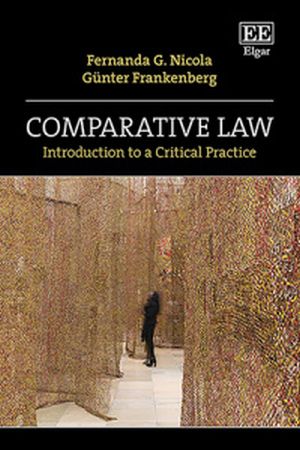
This book provides a practical introductory guide to comparative law. Fernanda G. Nicola and Günter Frankenberg present and examine conventional and critical approaches to legal comparison, exploring its ramifications in the field and political effects.
Comparative Law begins by outlining the theory and methodology of this critical legal practice. Chapters present real-world problems that the law faces in eight specific fields: property (informal property), contracts (specific performance), tort (wrongful birth), family law (same-sex marriage), administrative law (COVID-19 measures), constitutional law (veiling), legal transfers (gun control), and legal histories (indigenous property claims). Whilst examining various approaches to legal comparison, Nicola and Frankenberg crucially recognise how legal knowledge can be perpetually reconstructed, abstracted and re-contextualised in diverse settings across space and time.
Pairing real-world contemporary examples with established legal principles and practices, this book is an essential resource for teachers and students of comparative law and legal anthropology. Its practical case application will also be of interest to political scientists and journalists engaged in international legal regimes, problems and solutions.